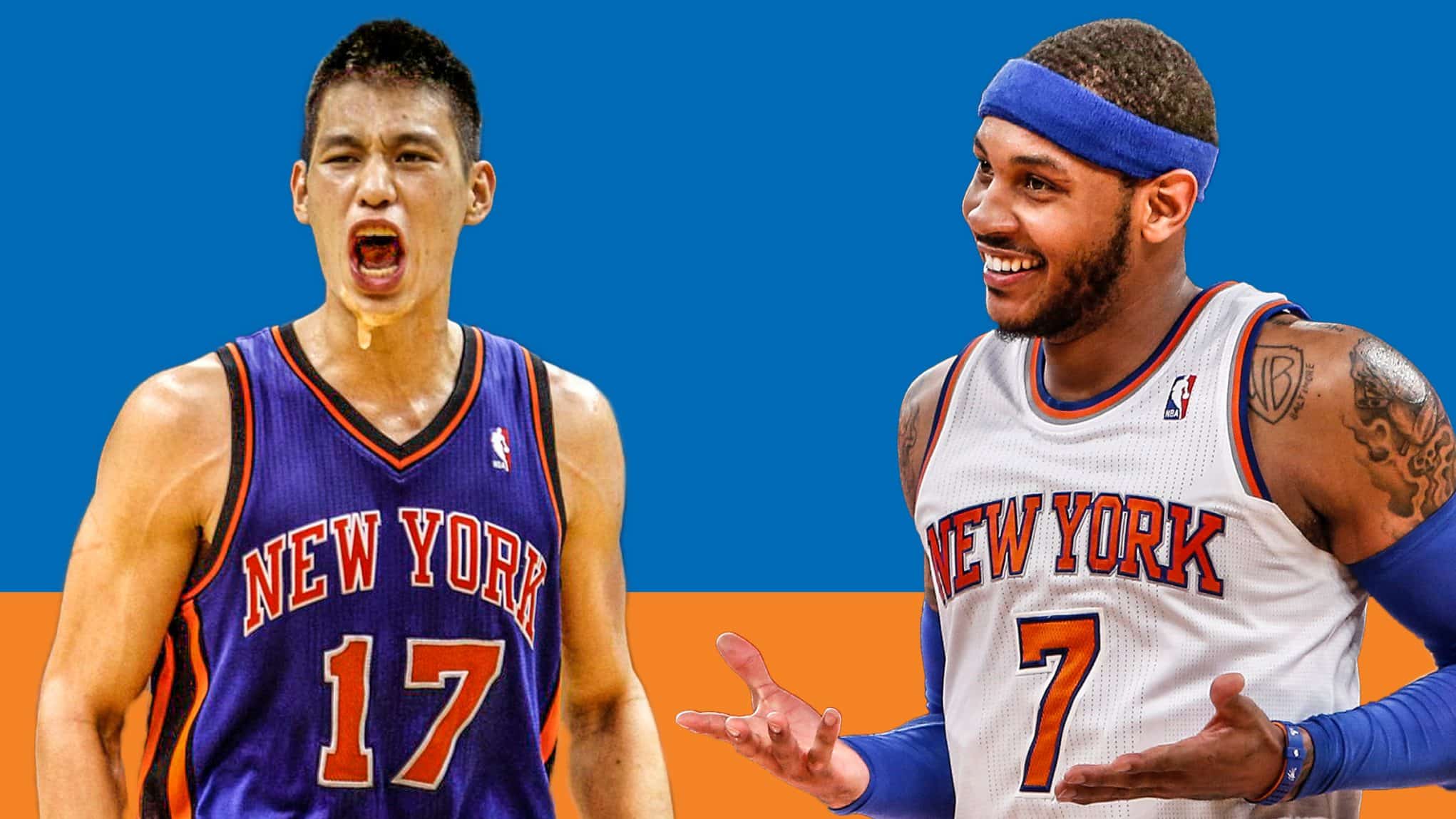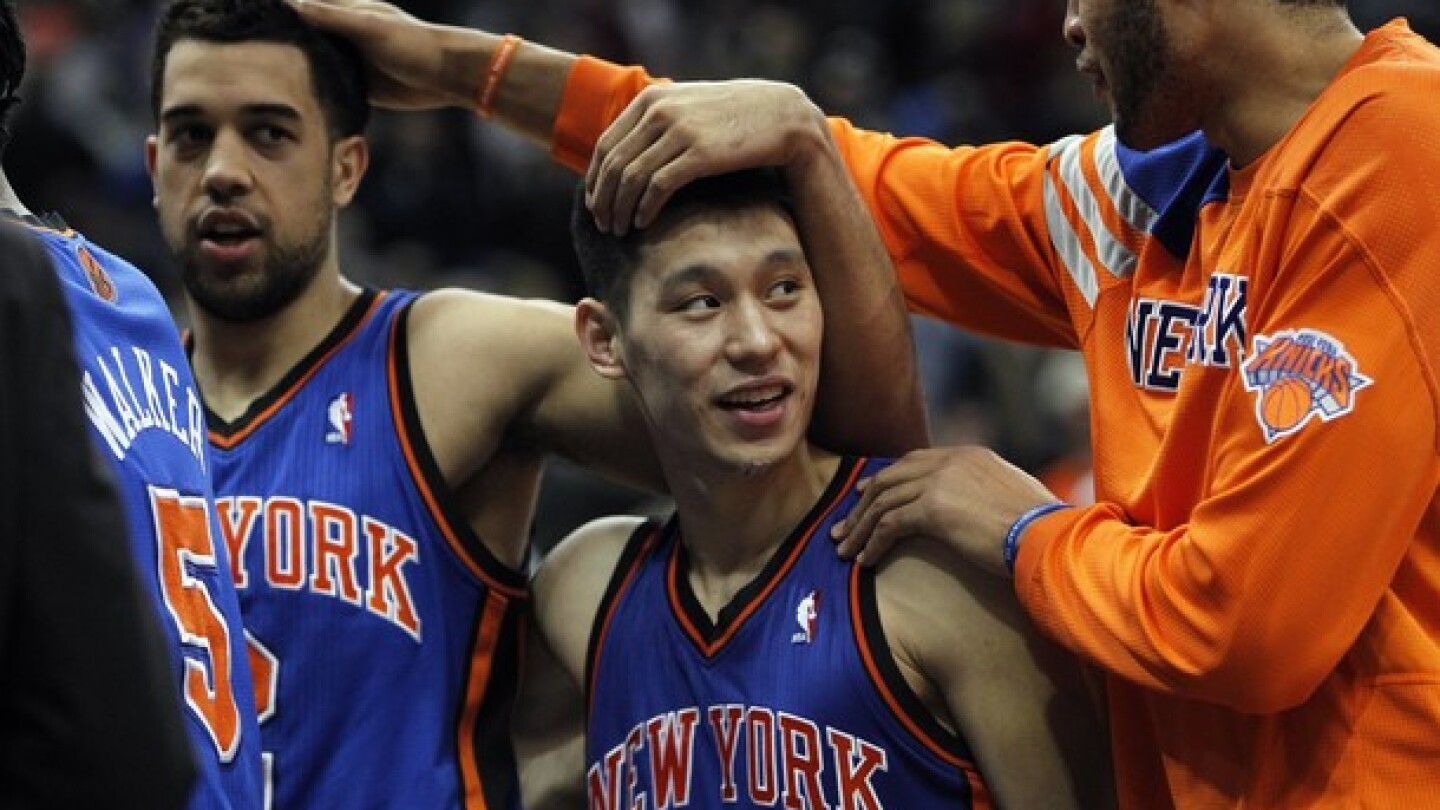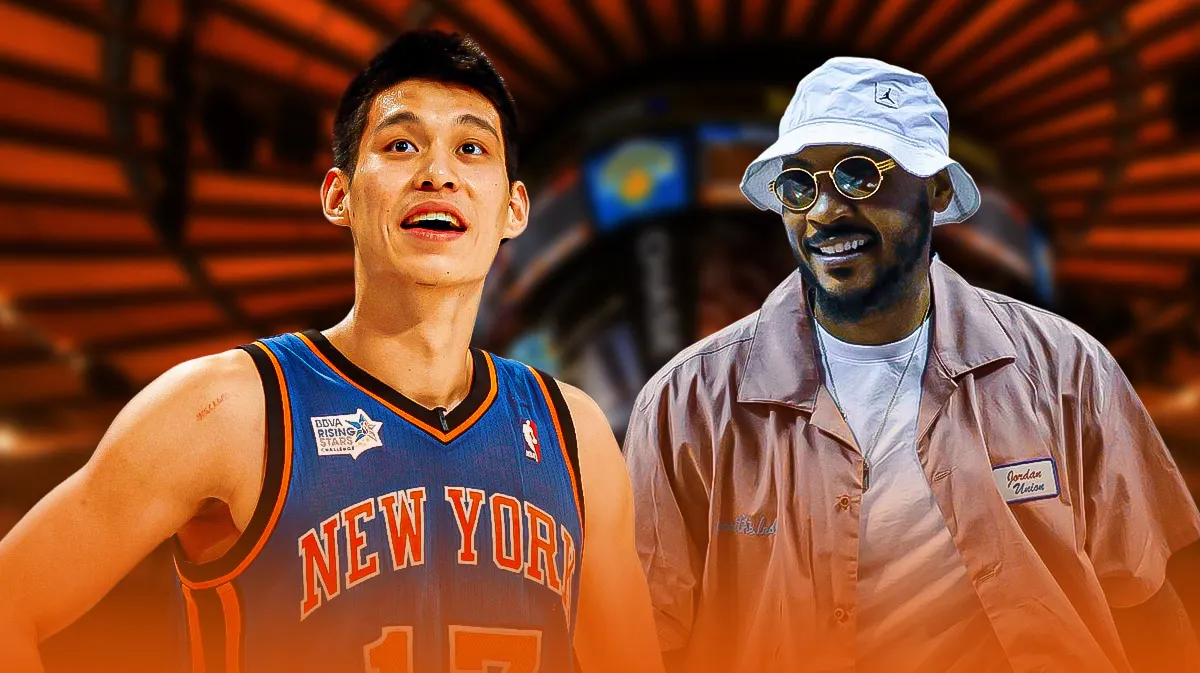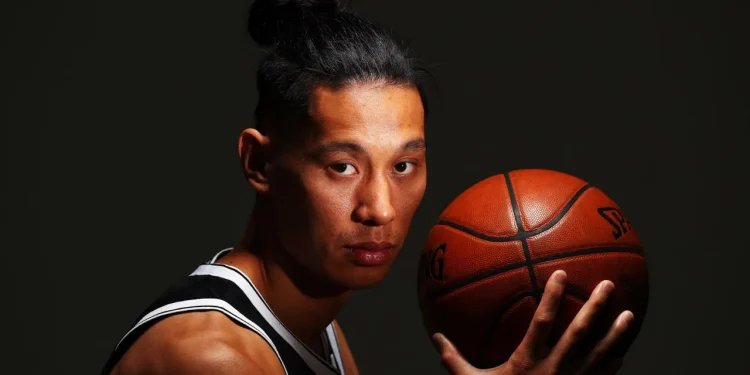Jeremy Lin aka Linsanity’s meteoric rise during the 2011-12 NBA season, famously dubbed “Linsanity,” is one of the most captivating stories in New York Knicks history. Dubbed “Linsanity,” Jeremy Lin’s explosive performance not only revived a struggling team but also brought a fresh wave of excitement to Madison Square Garden.
However, amidst the cheers and spectacular plays, there were whispers of discord, particularly involving Knicks star Carmelo Anthony. Recently, Anthony took a moment on his podcast, “7PM in Brooklyn,” to set the record straight, offering a new perspective on one of basketball’s most electrifying episodes.

A Spotlight on Support, Not Dissent
During a revealing conversation with co-host The Kid Mero and guest Baron Davis, Anthony addressed the rumors head-on. “People always talk about … nobody liked the Linsanity … personally me, you get what I’m saying? They throw that out there,” Anthony remarked, refuting claims of his dissatisfaction. This candid disclosure sheds light on the dynamics within the Knicks during Lin’s sudden rise, emphasizing a supportive, albeit complex, locker room environment.

The narrative that Anthony and his teammates were unsupportive of Lin seems to be a misunderstanding of the actual camaraderie and encouragement that existed behind the scenes. Anthony pointed out that they even urged Lin to capitalize on his newfound fame by exploring financial avenues. “Linsanity could’ve been a $100 million business, easy,” Anthony said, revealing attempts to persuade Lin to embrace the commercial potential of his meteoric rise.
Jeremy Lin Aka Linsanity’s Cultural Impact and Beyond
Jeremy Lin’s journey was more than just a sports story; it was a cultural milestone, particularly for Asian-Americans. Lin, an undrafted Harvard graduate, became the face of New York basketball for a magical two months. His performance peaked during a nationally-televised game against the Los Angeles Lakers, where he scored 38 points against the late Kobe Bryant, forever sealing his place in Knicks lore.

However, Lin’s reluctance to fully monetize “Linsanity” was influenced by his personal values, shaped by his upbringing. Anthony respected this, even suggesting, “matter of fact, bring your parents in here, let us talk to them,” highlighting his genuine interest in Lin’s well-being and success, both on and off the court.
The Aftermath and Legacy
While Lin’s time with the Knicks was brief, his impact was lasting. After his departure to the Houston Rockets, Lin continued to play in the NBA for seven more seasons and even secured endorsement deals with major brands like Adidas, Nike, and Volvo. He also wisely trademarked the phrase “Linsanity,” ensuring a legacy that extends beyond the hardwood.
The true essence of Linsanity, as clarified by Carmelo Anthony, wasn’t just about a player’s unexpected rise but also about the complexities and challenges of navigating newfound fame within the high-pressure environment of professional sports. This chapter in Knicks history remains a poignant reminder of the unpredictable nature of sports and the unscripted moments that often define an athlete’s career.
In revisiting these moments, Anthony not only clears up misconceptions but also highlights the supportive nature of professional teammates who often see beyond the game. Linsanity, with all its excitement and drama, was a collective chapter, celebrated and supported by the Knicks, even as it unfolded in the glaring spotlight of New York’s media.










